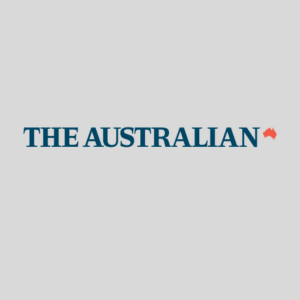A Hong Kong-born woman who gave birth to twins this year after agreeing to act as a surrogate for her close friend in Australia has been referred to police with her husband and lawyer, after they allegedly tried to extort money from the intended parents and threatened to sell the babies overseas.
Commercial surrogacy is illegal in all Australian states and territories other than the Northern Territory, which has no surrogacy laws. Any surrogacy arrangements must be altruistic.
The birth mother, known as “Ms Poon”, and her husband allegedly threatened to sell the babies if the intended parents did not pay a total of $370,000.
Ms Poon’s husband allegedly said: “If you don’t pay up, I will gift the two babies away. A boy and girl twins are very sought after. A lot of people will pay for them.”
A Sydney lawyer, Ms D, who acted for Ms Poon and her husband, has also been referred to the NSW legal watchdog over her role, which a judge said was a “matter of real concern”.
Ms Poon agreed to carry a baby for her friend, “Ms Yue”, who had been desperate to become a parent but unable to conceive a child with her husband.
Ms Poon and her husband were in Australia on student visas and wanted to become permanent residents. She believed having a child with an Australian citizen would provide an avenue to obtaining a visa.
Ms Yue and her husband – the twins’ biological father – initially agreed to pay all IVF and medical costs, and give Ms Poon about another $60,000 towards her immigration and tuition fees.
After trying four times to conceive naturally, Ms Poon and Ms Yue’s husband sought IVF treatment, passing themselves off to the clinic as a couple. Ms Yue went along as a “supportive friend” for Ms Poon.
However, after Ms Poon became pregnant with twins, she and her husband demanded increasing sums of money. She told the intended parents she no longer needed a visa because under legal changes in Australia she was entitled to a five-year temporary visa with a pathway to permanent residency.
After the birth, Ms D sent a letter on Ms Poon’s behalf to Ms Yue, demanding $290,000 within seven days. By then, she and her husband had already paid $80,000 to Ms Poon.
Ms D’s letter said the total sum of $370,000 was to “reimburse” Ms Poon for her cosmetic and medical expenses after the birth, her legal costs, a “maternity matron” who had been taking care of the twins “for at least two months”, and lost earnings for her and her husband.
Ms Yue and her husband then launched legal action against Ms Poon and her husband.
Family Court judge Janine Stevenson ruled that Ms Yue and her husband should have sole parental responsibility for the twins. Ms Poon and her husband withdrew from the case about three weeks after it was filed.
While there was no challenge to Ms Poon’s status as the legal mother, Justice Stevenson said her husband was not the babies’ legal father.
This was because he had never intended to be a parent to the children and if he had consented to the IVF treatment for his wife, it was only for the purpose of financial gain or a visa. She declared Ms Yue’s husband the babies’ legal father because he was the biological and intended father, had financially supported the children and spent as much time with them as possible.
Ms Yue did not try to seek a declaration that she was the twins’ legal mother under current laws, which recognise the birth mother as the legal mother.
Justice Stevenson referred both couples and the lawyer to police, to investigate their surrogacy arrangement which was in “apparent breach” of section 8 of NSW’s Surrogacy Act.
She said Ms Poon, her husband and lawyer might have committed “additional offences” due to their “demands for payment of money in exchange for the children”.
Referring Ms D to the legal services commissioner for investigation as to whether she was a fit and proper person to practise, Justice Stevenson said when Ms D was asked to make submissions about her potential referral to authorities, she “suddenly left her employment with F Solicitors and took with her the respondents’ file”.
Family lawyer Nicole Evans said she believed surrogacy laws needed to change so that women in Ms Yue’s situation could be recognised as legal mothers.
“The law in Australia in my view is behind most Western countries and surrogacy arrangements, in that the birth mother is recognised as the legal parent and the intended mother is not,” she said.
She said while legally, Ms Yue would be able to make decisions for the children because she had been awarded parental responsibility, she could not be declared the legal parent.
“From an identity perspective, it’s a strange situation because she is going to be raising the children as their mother but at law she’s not a parent,” she said.
She said it was a “flaw in the system” which should be changed.
“Family structures are changing and it is does take a while for the law to keep up,” she said.

